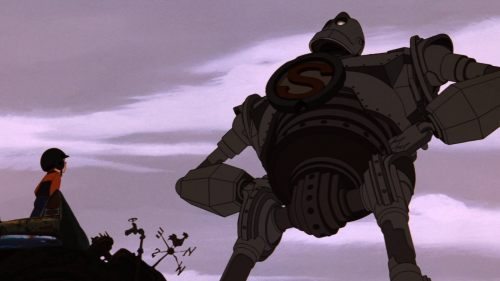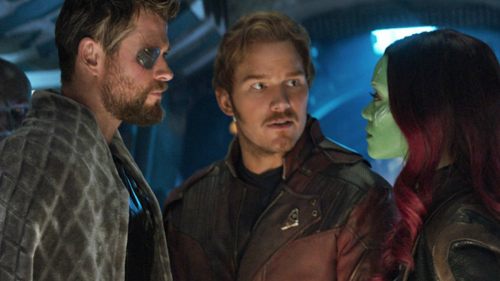How Han Solo’s STAR WARS Swagger Influenced the GUARDIANS OF THE GALAXY Far, Far Away
Harrison Ford's Han Solo is the nexus of true cowboy grit and classic, cocky action hero derring-do funneled through the lens of science fiction. He is a singular protagonist: flawed, ambitious, egotistical, daring, handsome, and above all, charismatic. To paraphrase Star Wars screenwriter Lawrence Kasdan, watching young Harrison Ford as Han Solo is like witnessing the rebirth of Spencer Tracy - he's impossible to replicate, though you can capture and emulate his essence.
That essence is swagger. Few possess that immaculate combination of confidence and charm, and if we lived in a different, more ballsy sort of cinematic world, Jennifer Lawrence would be the ideal casting choice for young Han Solo. Taron Egerton is a close second.
It isn't just Ford's iconic character that's influenced numerous protagonists in the decades that followed, but the way he plays Han Solo - the combination of Ford's own approach and Solo's fictive personality, which takes on a life of its own, almost possessing the actor. That rebellious space cowboy has informed many leading men in galaxies far, far away, from Firefly's Malcolm Reynolds to The Fifth Element's Korben Dallas, and even Chris Pine's performance as the cocksure James T. Kirk in the new era of Star Trek films.
But Han Solo's influence is far more overt in James Gunn's Guardians of the Galaxy, which made Chris Pratt a certifiable movie star with his cocky-yet-oblivious, womanizing, impeccably handsome and wholesome Peter Quill, aka Star-Lord. Marvel's intergalactic hero became an instant icon, thanks to Pratt's effortless charm and arrogant humor - but Star-Lord is sort of the inverse of Han Solo: where Han appears to earn his arrogance, Peter's is bumbling and facetious, wearing his conceit like a pair of endearing clown shoes. He is the space cowboy evolved for a meta-obsessed generation, a geek-friendly leading man who feels attainable even with a perfect six-pack.
That relatable quality can be attributed at least in part to Pratt the actor, who touted his transformation from adorably schlubby Parks and Rec dad bod to chiseled Marvel superhero via social media, showing nerds everywhere that deep inside each and every one of them was a charismatic Star-Lord just waiting to burst free from the lumpy clay.
If Peter Quill is the evolution of Han Solo for contemporary nerd culture, Zoe Saldana's Gamora is his direct descendent (give or take a few alien dalliances). Unlike Peter, Gamora's self-assurance is earned, and it's that justification that proves the difference between being cocky and being confident. Like Han, Gamora is reckless and wild, rebellious and smooth, charming and cool, more than capable of firing a blaster and throwing humorous shade in equal measure.
Gamora sets herself apart from Han with a deep, enriching back story, and while her life experience feels more poignant and informative than the little we know of Han in the original trilogy, there's a sweet naivety to Gamora when it comes to certain corners of the galaxy and humanity. If Peter Quill is Han Solo evolved for the modern nerd, Gamora is Han Solo for the purist.
It's strange that so many people make the obvious connection between Han Solo and Star-Lord, and yet no one ever talks about Ford's iconic character in relation to Gamora - Peter Quill bears such overt Han Solo hallmarks, but Gamora has the real attitude. Perhaps Saldana's natural, laid-back performance makes her relation to Han more subtle.
And she's not the only woman in sci-fi that's been influenced by Ford's classic Star Wars hero - you might even argue that more women have successfully emulated Han than men: Doctor Who's River Song and - to some extent - Amy Pond, Battlestar Galactica's Kara Thrace (aka Starbuck), Sarah Connor, Futurama's Leela, the MCU's Black Widow, and Saldana's own Uhura in the contemporary Star Trek films.
Whether directly or indirectly, these characters have been informed by that rugged, sci-fi cowboy swagger - often imitated, but never duplicated.



